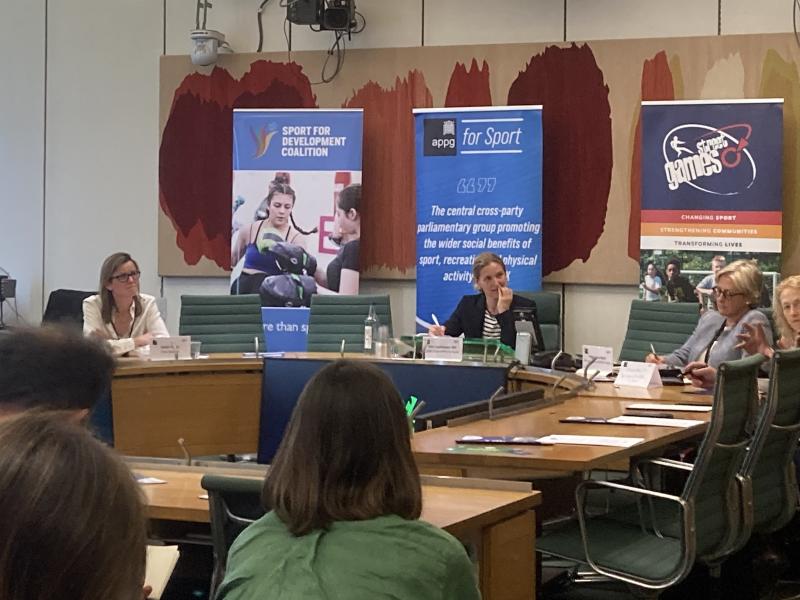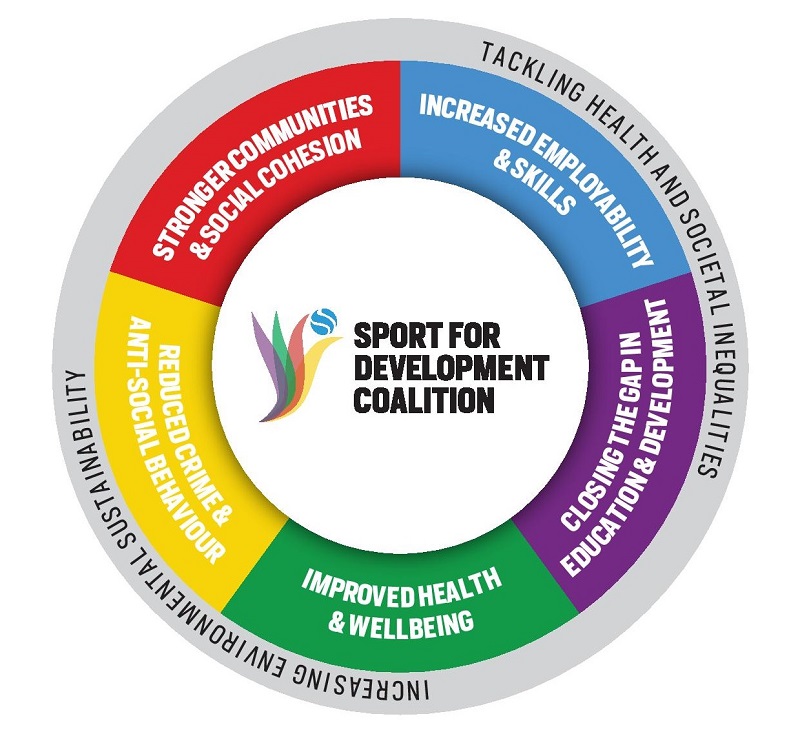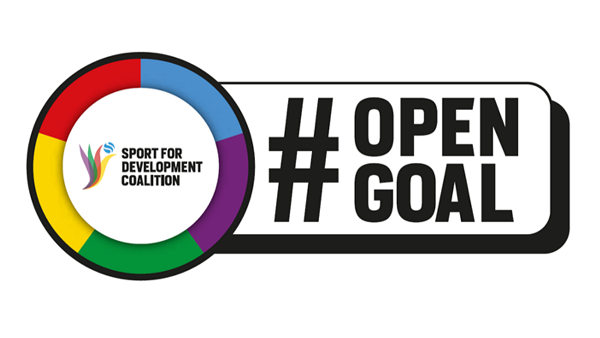Members of Parliament and the House of Lords have called for the Coalition and its key partners to collectively focus on what will “really make the Government sit up and take notice” of sport for development.
The APPG (All-Party Parliamentary Group) for Sport, chaired by Labour MP Kim Leadbeater and co-ordinated by the Sport & Recreation Alliance, met in Westminster to hear from Coalition members following the recent publication of their #OpenGoal annual report.
TARGETED
The 20-page report highlights how the growing UK-wide Coalition of more than 400 charities, organisations and networks use targeted sport and physical activity-based interventions to address key health and societal inequalities, for example improved mental wellbeing and social cohesion, and reduced crime and youth unemployment.
It is called ‘open goal’ because Coalition members believe the multiple returns on investment offered by sport for development present an obvious solution for policy-makers seeking to maximise the impact of public spending decisions in a cost-of-living crisis, especially considering how they are predominantly delivered in more deprived communities. Research from 2021 showed 64% of interventions by eight leading Coalition networks took place within the lowest 30% of deprived communities across the UK.
“This is a sector which, for me, has got huge potential in lots of ways and isn’t really being fully maximised by the powers that be,” Kim told the APPG meeting entitled ‘Sport for Social Change’.
“We have got amazing people in organisations up and down the country, working their socks off day in and day out, mainly on a voluntary basis and, in lots of ways, propping up society and propping up communities, giving a focus for our young people and children - and actually they need a bit more support.
“That’s what I really want to champion during my time in Parliament.”
Mirroring the aims of the #OpenGoal framework (below), the MP for Batley and Spen believes all policy should be evaluated through a “health and wellbeing lens”, as described in her recent ‘Healthy Britain’ report for the Fabian Society, and that “every sector of our government and society must be involved”.
COMMUNITIES
She told the audience, which included representatives from a wide variety of sports governing bodies and charities, that “this is really about a lot of key interventions that take place in communities up and down the country which can really make a huge difference to people’s lives”.
Kim was joined on the panel by fellow APPG for Sport members Baroness Sater, Lord Addington and Christina Rees MP, who listened intently to three keynote speakers: Hitesh Patel, Executive Director of the Coalition, and the CEOs of two leading Coalition networks, Sarah Kaye from Sported, and Mark Lawrie from StreetGames.
After hearing from the speakers, Lord Addington urged them to focus on the value of their collective work to different Government departments. “You have got to make it coherent and continuous,” he said. “What really hits the buttons for Government? What really makes them sit up and take notice?”
Baroness Sater, who is also co-chair of the APPG for Sport and Physical Activity in the Criminal Justice System, highlighted the vital role of volunteers across the sport for development sector. Kim agreed and added: “We need more volunteers, but we need to support those volunteers.”
Coalition director Hitesh highlighted the contribution of sport to early-intervention work across numerous policy areas, from supporting healthier lifestyles from an early age in order to prevent non-communicable diseases, or in the context of the recent Youth Justice Sport Fund which supported children and young people at risk of becoming involved in the criminal justice system.
With the Government due to publish its new sports strategy this summer, Hitesh echoed Kim’s call for more joined-up working across departments and a clearer, shared understanding of how proven, evidence-based interventions can contribute to different areas of policy, as highlighted by the Coalition’s #OpenGoal framework.
CHALLENGE
Sarah warned that for many of the 3000 community-based clubs and groups which Sported supports “survival is a very real challenge” following the Covid-19 pandemic and subsequent economic crisis. Read more on this in Sported’s Community Pulse survey for May 2023.
To help alleviate this, Coalition partners can work collaboratively and help to bridge the gap between practice and policy. She added: “The difference is going to come through the community groups that sport for development sector can reach, giving funding in new and innovative ways and working together with Government to create a more connected and sustainable ecosystem.”
Mark focused on how Coalition members have come together to work increasingly with Government departments, for example with the Ministry of Justice to deliver the Youth Justice Sport Fund, and the Department for Education to deliver the Holiday Activity and Food programme and Opening School Facilities Fund. In this blog on the APPG, Mark describes how "the power of sport to effect change is no longer based on hopeful anecdotes."
Kim challenged attendees and colleagues to think about these “existing models” and “how we can upscale and expand this type of work by working on a cross-departmental basis, so working with Treasury and expanding this work across Government”.
She concluded: “When you consider the multiplicity of benefits (of sport for development) – in particular physical and mental wellbeing, community safety and crime prevention, social cohesion, and all those different layers – then sometimes it’s difficult to put a figure on that when it comes to money.
“That’s part of the problem because it’s difficult to quantify it…. but, in terms of the social return (on investment), whenever we can quantify it, we should because the pound signs are what Government sees, and – whoever is in Government – that is the argument we are going to have to make to whoever makes those decisions.”





